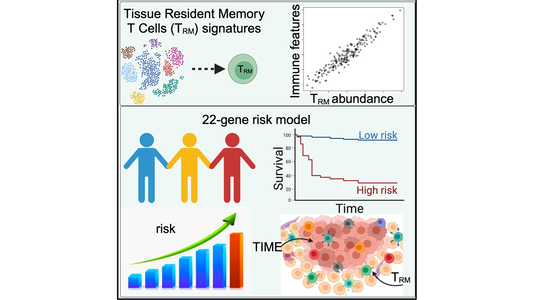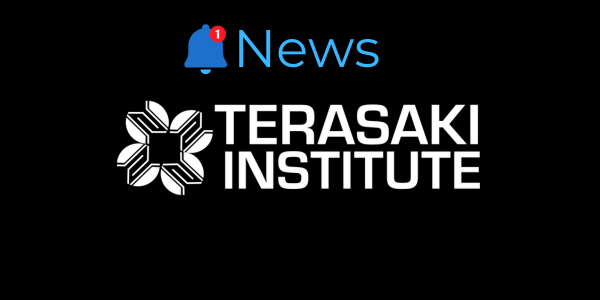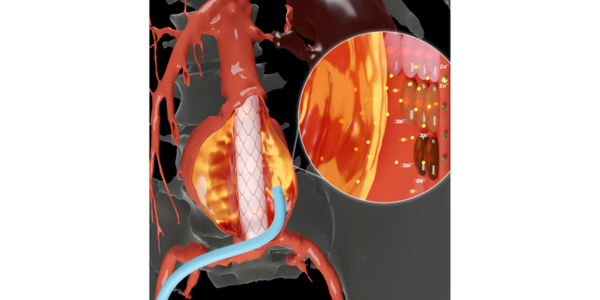(LOS ANGELES) - Researchers at the Terasaki Institute for Biomedical Innovation (TIBI) have unveiled a pioneering study shedding light on the intricate mechanisms underlying Alzheimer's disease (AD). The study, titled "Effects of amyloid-β-mimicking peptide hydrogel matrix on neuronal progenitor cell phenotype," represents a significant leap forward in understanding the interplay between amyloid-like structures and neuronal cells.
News
News
Maximizes Production and Performance of Wearable Sound Amplifiers
(LOS ANGELES) – Scientists at the Terasaki Institute for Biomedical Innovation (TIBI) have employed artificial intelligence techniques to improve the design and production of nanofibers used in wearable nanofiber acoustic energy harvesters (NAEH). These acoustic devices capture sound energy from the environment and convert it into electrical energy, which can then be applied in useful devices, such as hearing aids.
The Terasaki Institute hosted its annual Open House 2024 which brought together the community of Woodland Hills, California, for an exploration of cutting-edge bioengineering research done in-house. Held over four hours, this event was a testament to the institute’s commitment to bridging the gap between research and translation, as well as science and the public.
(LOS ANGELES) – An extensive analytical study conducted at the Terasaki Institute for Biomedical Innovation (TIBI) has revealed an association between favorable survival outcomes for melanoma patients and the presence of higher populations of tissue-resident memory T cells (TRM). Data obtained from this study could be used not only for a TRM-based machine learning model with predictive powers for melanoma prognosis but could also elucidate the role TRM cells can play in the tumor immune microenvironment. This could guide the development of more effective and personalized anti-tumor immunotherapeutic treatment regimens for cancer patients.
World leaders in academia and industry share their latest advances in bioengineering, discuss current trends in innovation, and network with their peers
(LOS ANGELES) – The Terasaki Institute for Biomedical Innovation (TIBI) hosted their second annual Terasaki Innovation Summit on March 27-29, 2024, at the UCLA Meyer & Renee Luskin Center in Los Angeles. This year’s program focused on future directions in human and planetary health, as well as the latest trends in biomedical innovation and translation.
JACKSONVILLE, Fla. — Mayo Clinic and Terasaki Institute for Biomedical Innovation announced today a research collaboration centered on improving organ transplant outcomes.
Beginning in April, Mayo Clinic biomedical researchers and Terasaki Institute scientists will work together on two core areas: real-time monitoring of donated organ health from procurement to transplant surgery and developing predictive technologies to determine which transplant recipients have a higher likelihood of rejection. That will be done by creating prognostic signatures and assays for antibody-mediated rejection of organ transplant. These initial projects are expected to take 24 to 30 months to complete.
(LOS ANGELES) –In a landmark move for biomedical progress, the Terasaki Institute for Biomedical Innovation (TIBI) today unveiled the launch of four pioneering startup companies. These ventures represent a strategic leap forward in TIBI's commitment to transforming healthcare through innovation. By harnessing the institute's groundbreaking research in biomaterials, micro-needles, organoids, tissue engineering, and advanced biosensing, these startups are poised to tackle some of the most pressing health challenges of our time.
New hydrogel features enhanced capabilities for treating aneurysms and halting their progression
(LOS ANGELES) – A novel, injectable shear-thinning hydrogel for treating abdominal aortic aneurysms (AAA) has been developed by scientists at the Terasaki Institute for Biomedical Innovation (TIBI). This hydrogel not only demonstrates increased effectiveness at sealing off blood flow to AAAs, but also stops the growth of the aneurysms themselves.








